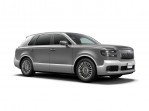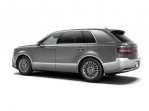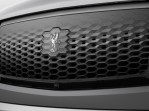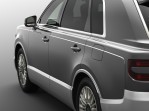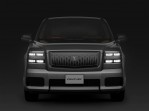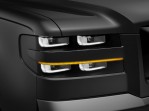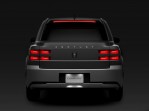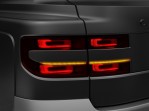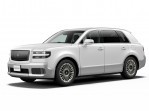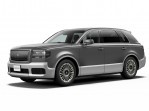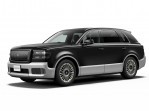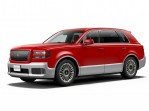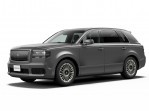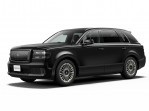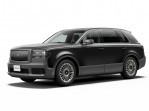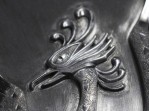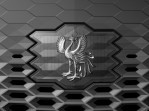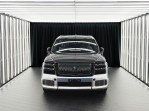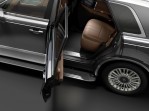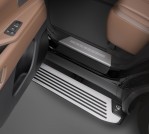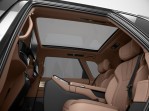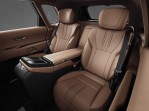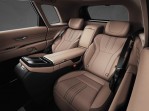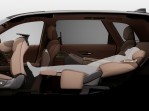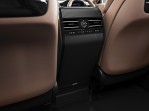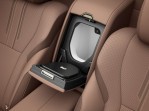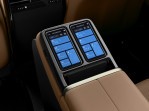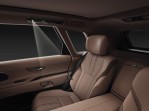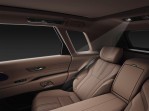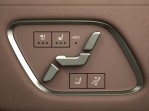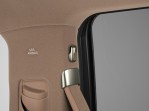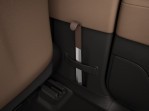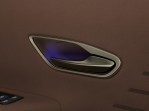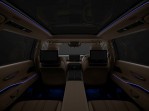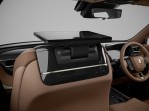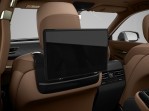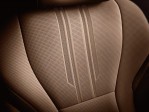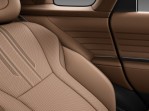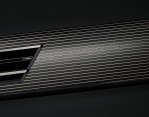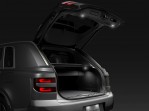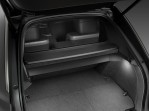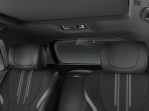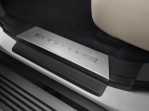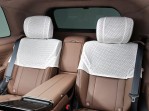Body style: SUV (Sports Utility Vehicle)
Segment: Large SUV
Infotainment: ![]() Apple CarPlay
Apple CarPlay ![]() Android Auto
Android Auto
Production years: 2023, 2024
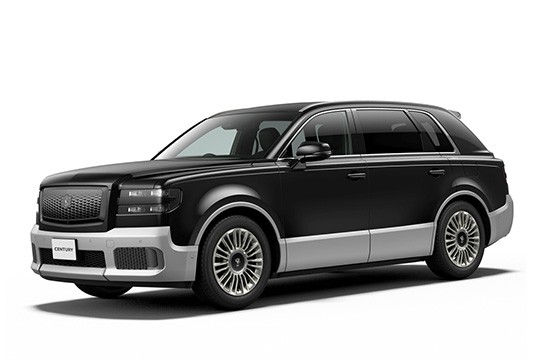 82 Photos
82 PhotosIn 2023, Toyota introduced the Century SUV, and it was more than a premium vehicle; it was a car that redefined the luxury concept in the carmaker's philosophy.
The Japanese automaker put a lot of work and effort into developing this vehicle. It placed any high-tech piece of engineering that it had in its basket, and when it didn't have it, it developed it. It was the SUV designed and manufactured for clients obsessed with high-quality materials, fit, and finishes. But still, the exterior design department looked like it took inspiration from other luxurious SUVs.
The Century SUV was a statement vehicle. It was big and bold but without being aggressive. At the front, the four LED lamps inside each headlamp were clearly separated. The massive grille at the front was filled with a hexagonal-shaped pattern, and, surprisingly, there was no Toyota badge on it. Instead, the automaker used the Phoenix bird badge that took center stage and reminded customers about the older Century models. Underneath it, on the lower side of the bumper, Toyota installed the rear grille flanked by two side scoops. From its profile, the shaved corners resembled those from the 1967 Toyota Century executive car, while the D-pillars had a similar look to those from the 2018 Century. But one of the most interesting features of the Century was on its rear doors. These were front-hinged but could also slide rearward so passengers could easily ingress and egress from the rear seats.
Inside, the automaker installed a so-called Japanese luxury cabin. The vehicle was clearly divided into two distinct areas: for the driver and side passenger and for the rear seats. As expected, the rear ones were the most important. There were two individual seats, which could recline into an almost completely horizontal position, so those seated there could take a nap during their commute or travels around the country. In addition, the side windows were electrochromatic. They could be made opaque so the rear-seat occupants could enjoy more privacy. At the front, the driver faced a massive dashboard filled with an infotainment touchscreen placed atop the center stack and a TFT display for the instrument cluster. The wide center console that separated the front seats housed the transmission gear lever and several other buttons. Like in any other Century model, this SUV didn't show any Toyota badges, and the steering wheel was adorned with the same Phoenix bird.
Toyota focused on sustainable solutions and offered the Century SUV with a plug-in hybrid architecture, which allowed the vehicle to roam silently through the streets inside cities and speed up quickly when needed thanks to the gasoline V8 powerplant under the hood. Moreover, the car featured an all-wheel-drive system, which made it capable in slippery road conditions, unpaved surfaces, and light off-road situations.
TOYOTA Century SUV 2023, 2024
- 3.5L V6 PHEV eCVT
TOYOTA Century SUV
3.5L V6 PHEV eCVT
ENGINE SPECS - 3.5L V6 PHEV eCVT | |
|---|---|
| Cylinders: | V6 |
| Fuel System: | Turbocharged Direct Injection |
| Fuel: | Plug-in Hybrid |
TRANSMISSION SPECS | |
|---|---|
| Drive Type: | All Wheel Drive |
| Gearbox: | eCVT |
BRAKES SPECS | |
|---|---|
| Front: | Ventilated Discs |
| Rear: | Ventilated Discs |
DIMENSIONS | |
|---|---|
| Length: | 204.9 in (5204 mm) |
| Width: | 78.3 in (1989 mm) |
| Height: | 71.1 in (1806 mm) |
| Wheelbase: | 116.1 in (2949 mm) |
WEIGHT SPECS | |
|---|---|
| Unladen Weight: | 5666 lbs (2570 kg) |















